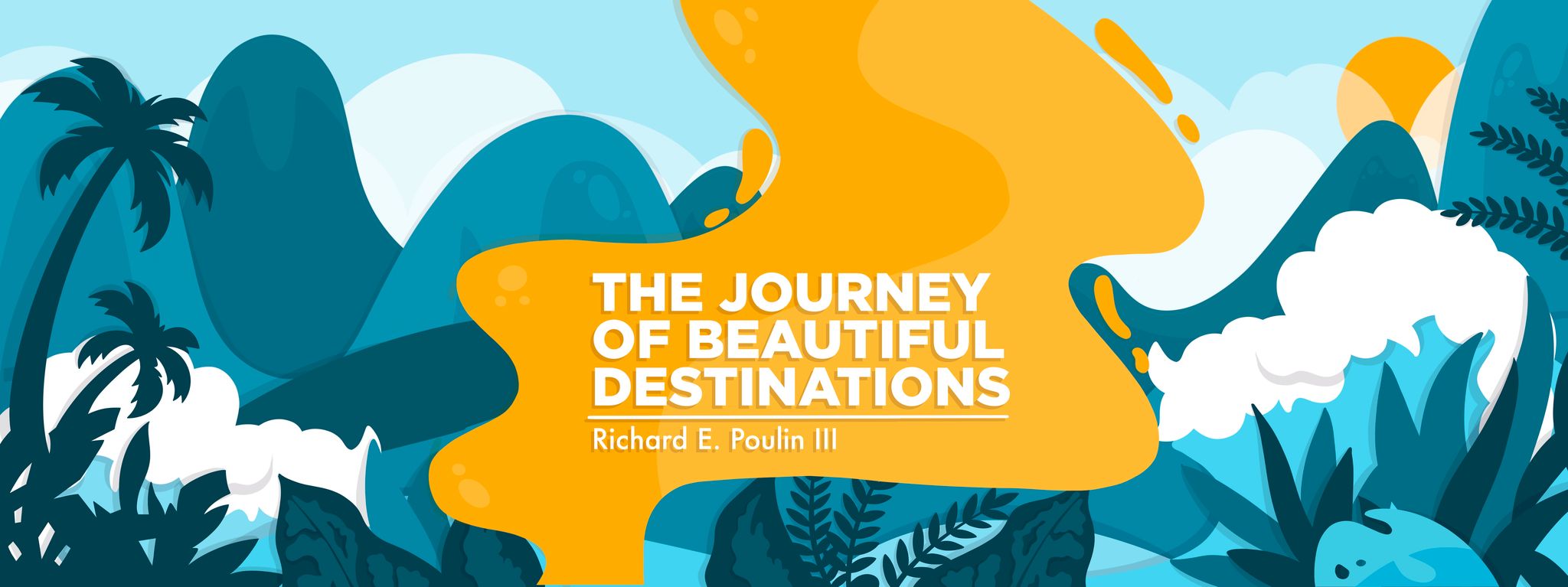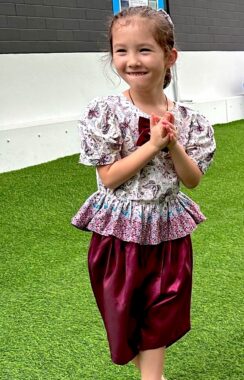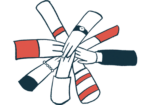In Thailand, we cherish the cleansing waters of Songkran
For us, the Thai New Year symbolizes resilience, respect, and renewal
Written by |

Every April, as the blazing sun rises higher in the Thai sky, buckets are filled, water guns are loaded, and smiles stretch wide across faces. For most families, Songkran, the Thai New Year, is celebrated by cooling off in the summer heat with laughter, reunions, and playful water fights in the streets.
For my family, Songkran is all of that and something more: It’s a quiet time of reflection and deep gratitude. Songkran symbolizes renewal on our rare disease journey with our daughter, Rylae-Ann.
The Thai New Year is a time to wash away the past and begin anew when the dry season ends and the rains come. This year, Songkran is celebrated April 13-15. However, like spring break in the United States, schools have the entire week off. This means my wife, Judy, our daughter, and I are all off at the same time.
Traditionally, elders are honored with gentle water poured over their hands in a gesture of respect and blessing. This is rooted in spiritual calm. It is a moment to pause, connect with loved ones, and cleanse both the body and the spirit.
When our daughter was diagnosed with aromatic l-amino acid decarboxylase (AADC) deficiency, these meanings took root in our lives in unexpected ways.
The early days of Rylae-Ann’s health journey were full of fear and uncertainty. Judy and I didn’t know what the future would hold, and the world felt like a storm we couldn’t shelter from. We were surrounded by doctors and unanswered questions instead of family gatherings and shared meals. What was once a joyous time for Judy and me growing up in Thailand took a back seat like all the other holidays and special events during those difficult times. Songkran remained a moment we clung to.
During our family’s first Songkran after Rylae-Ann’s AADC deficiency diagnosis, Judy and I stayed secluded in the safety of our home. But that day, we filled a small, silver bowl with water and jasmine petals. We gently poured it over Rylae-Ann’s hands, whispering prayers of hope and healing. We lit incense, not only for tradition but also because the gentle scent calmed her. We remembered that our roots, rituals, and love remained, even though life had changed.
A new Songkran begins
After Rylae-Ann had undergone gene therapy and our skills as caregivers grew, so did our confidence. She began standing with support, splashing in the basin herself, and giggling at the cool water running over her fingers. Each Songkran became a milestone. Where there were once limitations, now there was progress. Where there was fear, now there was joy, splashing, and belly laughs.

Rylae-Ann Poulin wears a traditional Thai costume to celebrate Songkran on her final day of school before spring break. (Courtesy of Richard E. Poulin III)
We will return to the streets this year and experience Songkran in all its glory. Our neighbors, noticing Rylae-Ann’s progress and our new openness, already told us we were going with them. They saw our struggles and Rylae-Ann’s fantastic progress.
Thanks to our children’s book and my sharing of our daughter’s struggle, my school community has received an outpouring of support. Everyone is already looking forward to Rylae-Ann running around in her bathing suit and spreading her infectious laughter as she sprays water.
Like all of our holidays, Songkran is an opportunity. It’s a time when our family celebrates the gift of life and all the people who allowed us to enjoy it.
Songkran taught us to embrace change. The water that soaks you can also cleanse you. The past may leave its mark, but it doesn’t define your path forward. As parents of a child with a rare disease, we often feel like we’re walking a path no one else sees. But every April, we’re reminded that we’re part of something bigger: a culture of resilience, respect, and renewal.
So, for our family, Songkran isn’t just a festival; it’s a yearly homecoming, a gentle reminder that even the smallest drops of water, like the smallest signs of progress, carry the power to transform.
Note: AADC News is strictly a news and information website about the disease. It does not provide medical advice, diagnosis, or treatment. This content is not intended to be a substitute for professional medical advice, diagnosis, or treatment. Always seek the advice of your physician or other qualified health provider with any questions you may have regarding a medical condition. Never disregard professional medical advice or delay in seeking it because of something you have read on this website. The opinions expressed in this column are not those of AADC News or its parent company, Bionews, and are intended to spark discussion about issues pertaining to aromatic l-amino acid decarboxylase deficiency.






Leave a comment
Fill in the required fields to post. Your email address will not be published.